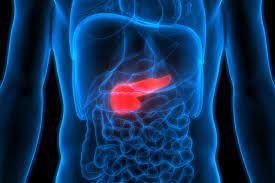Insulin helps blood sugar enter the cells, which your body needs for energy—turning it into glucose. It also signals whether to store excess energy as fat.
What does this mean for your health?
Metabolism helps your body decide what to do with the food you just ate. If you eat a bunch of food, specifically those high in carbs and sugar, and don't exercise, insulin will tell your body to store the calories as body fat. If this happens consistently over time, you can get Type 2 Diabetes or other related metabolic disorders. Too much sugar in your blood is toxic, and it can lead to atherosclerosis and heart disease. Regularly having high blood sugar levels for extended periods (over months or years) can permanently damage parts of the body, such as the eyes, nerves, kidneys, and blood vessels. Diabetes is the leading cause of heart attacks and early death.
The example that I like to use is comparing your pancreas to a small restaurant that comfortably serves a dozen people and is suddenly overwhelmed with 100 customers. That small restaurant can get through it a few times, but if it is constantly being overwhelmed with more people than it can handle, eventually, the staff will quit. One thing the restaurant can do is set up a maître d', which can help regulate the number of people being sat at tables and orders of food.
If you have a normal functioning liver and pancreas and are steadily using energy by exercising and eating moderately, your body isn’t storing much fat. Said another way, if you are not overwhelming your body, you will allow your liver and pancreas to handle the inflow of food, and you will be in balance. But if you consistently are not exercising, not using the energy up, and adding more processed carbs and refined sugar, eventually, your pancreas will give out.
Why are our bodies susceptible?
Overwhelming your liver and pancreas is a problem because, for most of human history, there was not enough food, and especially, carbohydrates and sugar were difficult to come by. A good example I use is for hunter-gatherers to get honey; it was quite a labor-intensive activity. First, you had to find a beehive. Then you had to climb the tree; if you needed smoke to disorient the bees, you had to make a fire by hand. These are all high-calorie expenditures. Said simpler, IT WAS HARD WORK. Once you got the honey and woofed down a couple of pieces, you would share some. Also, the bees don't have that much honey available in their hive, so if you wanted more, you would have to find another hive and repeat the whole process, or you would have to forgo honey. Adding to this, you wouldn't want to decimate your food source, so you would ration it and save it for later.
The same goes for dried fruit. The same issue occurs with drying fruit. First, fruit only lasts for a while, and you must store it. Second, you still have to process it, which is work. How much could you process? On the Pueblo, I often see homes with drying racks, but I usually see one or two. That isn’t a lot of fruit.
Nature was our dietitian and our fitness coach at the same time!
Now that we've industrialized food, we can go to the store, buy 20 jars of honey, and consume them all in a day. Unfortunately, our liver and pancreas did not evolve to process/digest/metabolize all that sugar in that short of time.
The same thing happens with dried fruit; I could purchase bags of dried blueberries, cranberries, and cherries and consume them all in a day. I have reduced the time and labor to almost zero.
So this massive radical change in our food system forces our liver and pancreas to go from a small restaurant that handles a dozen or so people to corporate-level dining. This is really the food problem we are facing now. I hate to simplify things, but it is literally a problem of scale.
I've just outlined a scale issue, and our bodies are not up to scale!
What can you do?
So the problem is easy to identify. The hard part is instead of nature determining what you eat and how hard it is to get food, you have to step in and regulate your intake.
There are many diets out there, but the first step needs to be eating less refined carbs and less sugar. I would completely cut out juice and soda. And alcohol.
Soda is a direct sugar infusion into your liver, making it particularly bad for your body. There has to be some level of caloric restriction, and that means going without eating. You have to tell yourself, and I always do this for myself. I tell myself it's OK to be hungry. There's nothing wrong with it with going to bed hungry, especially in this day and age. Second, you do have to be active, and it doesn't require running marathons or being a bodybuilder. You just have to be active because that starts the reverse process of burning the energy that is stored as fat, and you can't reward yourself with a snack because you will never burn the stored fat.
As I mentioned, one of the roles of insulin is signaling the body to store energy as fat. Understanding this vital function is an opportunity to get involved in your health and start reducing damage to your liver and pancreas.


